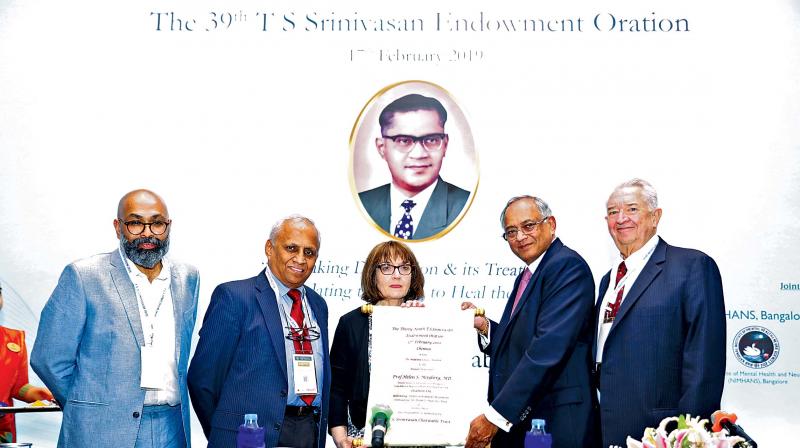Chennai: Optimised deep brain stimulation to treat patients battling depression

Chennai: Prof. Helen S Mayberg, Director-Centre for Advanced Circuit Therapeutics, Icahn School of Medicine at Mount Sinai, New York, said that antidepressants and psychotherapy can provide relief in people with persistent depressive disorders and can help them to resume a normal life. But for those who experience treatment-resistant depression (TRD), standard medications and therapies tend to provide little to no relief. This is where treatment technologies such as Deep Brain Stimulation (DBS) come into play, She said while delivering the 39th TS Srinivasan endowment oration titled "Rethinking Depression and its Treatment - Stimulating the Brain to Heal the Mind" in the city on Sunday.
"DBS is an emerging treatment strategy for patients with intractable depression which uses high-frequency electrical stimulation that is targeted to a specific or localised area of the brain. Use of specialised scanning techniques to map depression in the brain plays a crucial role in the development, testing and refinement of the procedure.
The professor detailed the progress being made in treating depression by combining new technologies with enhanced imaging techniques to improve predictability. Depression is a condition where human emotions become altered significantly resulting in abnormalities of mood, emotional experience and expression, self-confidence and functional ability. Accompanied by a host of biological function disturbances (sleep, appetite and sexual function all being affected), it is the most common mental health problem worldwide. It also causes significant disability globally and can affect anyone, at any age. 10% of all people in the world suffer from depression, with India, China and US being the top three.
DBS can be likened to a pacemaker for the brain and is similar to DBS implants used in patients with Parkinson's disease. Many patients with implants have lived depression free since the first DBS operations performed over a decade ago. She said recovery can be extremely dramatic in some patients, while it can take a year or maybe two in others. She emphasised the importance of multidisciplinary care for people with depression that must continue during and after the process of DBS. Indeed, the experience of depression as reported by patients, pre and post DBS reveals unique insights about the importance of this combined rehabilitative approach.

